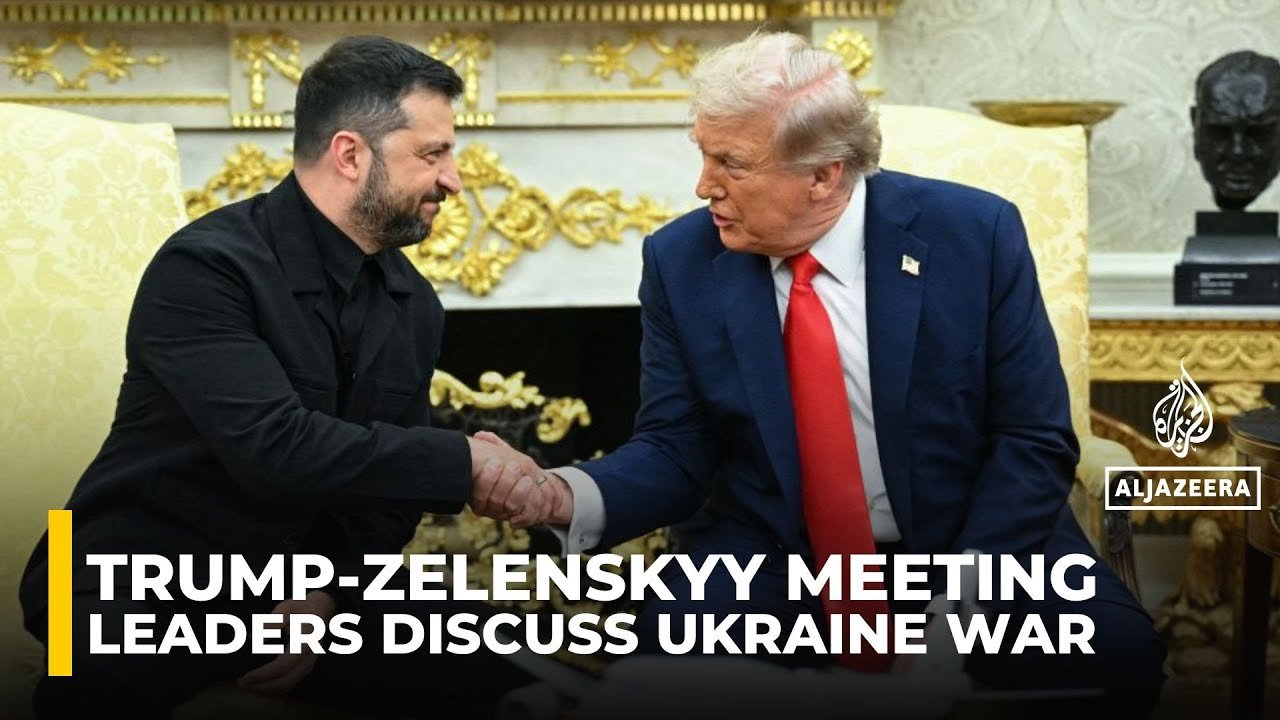The Russia-Ukraine war remains one of the most critical issues shaping global politics in 2025. This ongoing conflict has reshaped European security, disrupted economies, and strained diplomatic relations worldwide. Recent statements from the Kremlin and former U.S. President Donald Trump have reignited discussions about the war’s future, raising questions about the possibility of peace talks between Russian President Vladimir Putin and Ukrainian President Volodymyr Zelensky.
In this article, we’ll explore the latest developments, their implications, and what they mean for global stability. Let’s dive into the details with a clear and balanced perspective.
Kremlin Dismisses Talks with Zelensky
The Kremlin, through its spokesperson Dmitry Peskov, recently downplayed speculation about peace negotiations with Ukraine. Peskov described such talks as “unrealistic” and suggested that Ukraine’s leadership is not open to agreements with Russia. This stance underscores Russia’s confidence in its ongoing “special military operation,” which began in 2022.
For now, the Kremlin appears focused on prolonging the conflict rather than seeking a diplomatic resolution. This approach aligns with Russia’s broader strategy of waiting out Western support for Ukraine, betting that political and economic pressures will weaken its adversaries over time.
Trump’s Warning: Putin Unlikely to Negotiate
Former U.S. President Donald Trump, a prominent figure in the 2024 U.S. election cycle, has added fuel to the conversation. Trump warned that Putin is unlikely to agree to any deal, believing the current situation favors Russia. He suggested that Putin’s strategy is to extend the war, banking on diminishing Western resolve.
Trump also claimed that, if re-elected, he could end the war “in 24 hours” due to his experience negotiating with Putin. While bold, this statement highlights the complexity of the situation and the challenges of achieving peace through diplomacy.
Ukraine’s Struggle: War’s Toll and Public Hopes
For Ukraine, the war is more than a geopolitical conflict—it’s a fight for survival. The nation has faced immense challenges, from destroyed cities to a struggling economy. Millions of Ukrainians have been displaced, and the war’s impact continues to weigh heavily on civilians.
President Zelensky has been vocal on the global stage, seeking military and economic support while insisting that negotiations can only begin once Russian forces withdraw. However, the growing gap between Russia and Ukraine’s positions makes peace talks increasingly elusive.
The Role of the U.S. and Western Allies
Western nations, particularly the United States and the European Union, have been Ukraine’s lifeline. Their support includes:
- Economic aid: Billions of dollars to sustain Ukraine’s economy.
- Military assistance: Advanced weapons, tanks, and air defense systems.
- Diplomatic backing: Resolutions supporting Ukraine at the United Nations and other forums.
However, as the war drags on, cracks are appearing in Western unity. Some nations question the sustainability of long-term support, especially as energy crises and inflation pressure their own citizens.
Russia’s Long Game: A Strategy of Patience
Russia’s approach appears calculated to outlast its opponents. By prolonging the conflict, Putin aims to:
- Exploit political shifts in Europe and the U.S.
- Capitalize on public frustration in Western nations over rising costs.
- Weaken Ukraine’s limited resources through sustained military pressure.
This strategy suggests Russia is in no rush to negotiate, believing time is on its side.
Global Perspectives: India and Beyond
India has maintained a neutral stance, advocating for “dialogue and diplomacy” to resolve the conflict. Meanwhile, China has deepened ties with Russia, positioning itself as a potential mediator. Despite discussions at forums like the United Nations, NATO, and G7, no concrete peace process has emerged.
The war’s global ripple effects—rising energy prices, disrupted food supplies, and inflation—continue to impact nations far beyond the conflict zone.
The Human Cost of the War
The war’s toll on civilians is staggering:
- In Ukraine: Millions are displaced, education is disrupted, and homes are destroyed.
- In Russia: Economic sanctions have increased living costs, prompting some to emigrate.
- Globally: Higher gas, oil, and food prices have fueled inflation, affecting everyday people.
These impacts highlight the urgent need for a resolution, yet the path to peace remains unclear.
What Lies Ahead for the Russia-Ukraine War?
The Kremlin’s dismissal of talks and Trump’s warnings suggest peace is not imminent. Several scenarios could shape the conflict’s future:
- Reduced Western support: A decline in aid could weaken Ukraine’s position.
- Russian gains: Prolonged fighting may strengthen Russia’s dominance.
- U.S. political shifts: A change in U.S. leadership, such as Trump’s return, could alter the war’s trajectory.
Despite these challenges, the global community must continue exploring diplomatic avenues to end the suffering.
Key Information at a Glance
| Aspect | Details |
|---|---|
| Kremlin’s Stance | Dismisses peace talks with Zelensky as unrealistic. |
| Trump’s Warning | Putin is unlikely to agree to any deal, favoring a prolonged conflict. |
| Ukraine’s Position | Demands Russian withdrawal before negotiations; seeks continued Western aid. |
| Western Support | Provides economic, military, and diplomatic backing, but fatigue is growing. |
| Russia’s Strategy | Prolong the war to weaken Ukraine and Western resolve. |
| Global Impact | Rising energy and food prices, inflation, and displacement of millions. |
Conclusion: A Complex Path to Peace
The Russia-Ukraine war remains a complex and evolving crisis. The Kremlin’s reluctance to engage in talks, coupled with Trump’s warnings about Putin’s intentions, paints a challenging picture for diplomacy. While Ukraine fights for its survival and the West grapples with its role, the human cost of the conflict grows daily.
The hope for peace lies in sustained dialogue and international cooperation. Though the road ahead is uncertain, humanity’s shared interest in stability demands that we keep pushing for a resolution.
Frequently Asked Questions (FAQs)
Q1. What did the Kremlin say about talks with Zelensky?
The Kremlin called peace talks with Zelensky unrealistic, stating no concrete initiatives are in place.
Q2. What was Trump’s warning about Putin?
Trump warned that Putin is unlikely to negotiate, believing the war’s current state benefits Russia.
Q3. Why are Zelensky-Putin talks important?
Such talks could pave the way for a diplomatic end to the Russia-Ukraine war, reducing global tensions.
Q4. How does the U.S. view the conflict?
The U.S. supports Ukraine with aid but recognizes the challenges in achieving a peaceful resolution.
Q5. What does this mean for the Russia-Ukraine war?
The lack of progress in talks suggests the conflict may continue, with significant global consequences.




